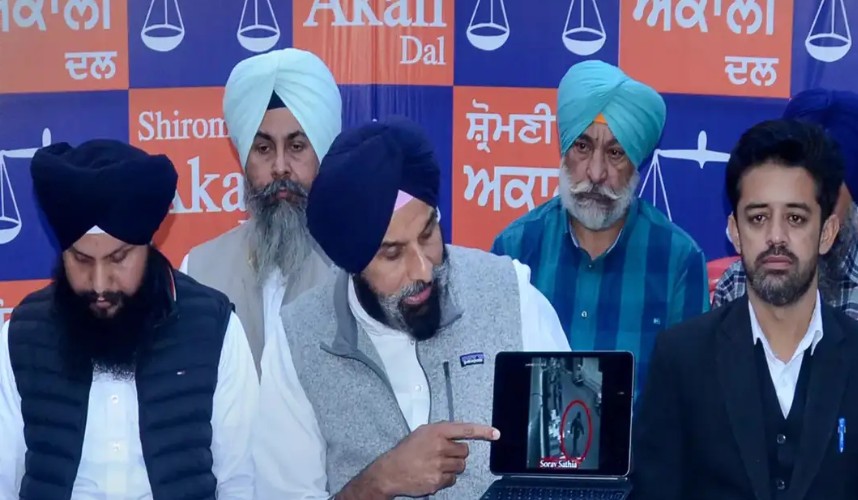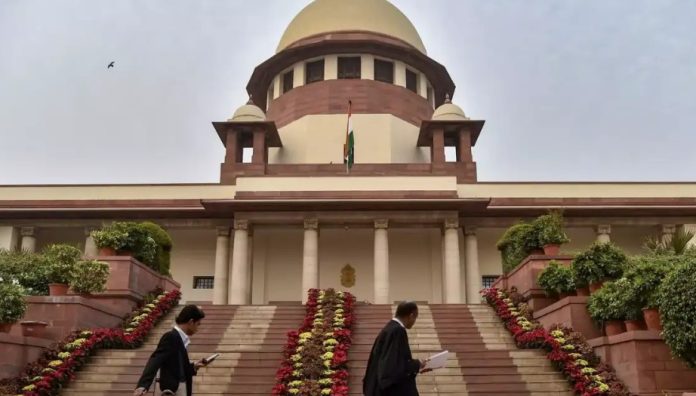In a landmark judgment that resonates with the principles of social justice and equality enshrined in the Indian Constitution, the Supreme Court of India has overturned the premature termination of a Punjab judicial officer, citing compelling evidence that the officer was unfairly targeted due to his social identity as the son of a cobbler. This significant ruling not only reinstates the officer to his position but also sends a powerful message against caste-based discrimination within the judicial system and underscores the apex court’s unwavering commitment to upholding the dignity and merit of individuals irrespective of their social background.
The case brought before the Supreme Court involved [mention the judicial officer’s name if available, otherwise use “the judicial officer”], who had served in the subordinate judiciary of Punjab for a certain period. His career trajectory, marked by diligence and competence, was abruptly halted by an order of premature termination issued by the relevant administrative authorities within the Punjab judicial system. The reasons cited for this termination were ostensibly related to his performance or conduct, but the judicial officer vehemently contested these grounds, alleging that the true motive behind his dismissal was his caste identity.
The judicial officer, belonging to a Scheduled Caste community and being the son of a cobbler, argued before the Supreme Court that he had been subjected to discriminatory treatment and that the allegations against him were fabricated or exaggerated due to prejudice against his social background. He presented evidence, which was meticulously examined by the apex court, suggesting a pattern of bias and unfair assessment that ultimately led to his unjust termination. This evidence reportedly included inconsistencies in performance evaluations, instances of differential treatment compared to his peers from dominant castes, and potentially testimonies or circumstantial factors that pointed towards a discriminatory motive.
The Supreme Court, after a thorough scrutiny of the case records and the arguments presented by both sides, found sufficient merit in the judicial officer’s claims. The apex court, recognizing the insidious nature of caste-based discrimination that can permeate even the most esteemed institutions, emphasized the constitutional mandate of equality and the imperative to ensure that merit and competence are the sole determinants of an individual’s professional career, particularly within the judiciary, which is the guardian of justice and fairness.

The judgment delivered by the Supreme Court explicitly stated that the evidence on record strongly suggested that the judicial officer was unfairly targeted and that his social identity as the son of a cobbler played a significant role in the decision to prematurely terminate his service. The apex court unequivocally condemned such discriminatory practices, asserting that they strike at the very root of the constitutional ideals of equality, social justice, and the rule of law.
In its ruling, the Supreme Court not only set aside the termination order but also directed the Punjab judicial authorities to reinstate the judicial officer to his previous position with all consequential benefits, including back wages and seniority. This directive underscores the apex court’s commitment to providing effective redressal to victims of discrimination and ensuring that they are not unfairly penalized for their social background.
This landmark judgment carries profound significance for several reasons. Firstly, it reaffirms the Supreme Court’s unwavering stance against caste-based discrimination in all spheres of public life, including the judiciary. By explicitly acknowledging the possibility of such prejudice within the judicial system itself, the apex court has sent a powerful message that no institution is immune to the insidious effects of caste bias and that vigilance and proactive measures are necessary to combat it.
Secondly, the judgment serves as a beacon of hope for individuals from marginalized communities who may face subtle or overt forms of discrimination in their professional lives. It demonstrates that the highest court of the land stands as a sentinel against injustice and is prepared to intervene decisively when constitutional principles are violated. The case highlights the importance of individuals raising their voices against discrimination and the potential for legal recourse to address such grievances.
Thirdly, the ruling underscores the critical need for systemic reforms within the judicial system and other public institutions to actively address and eradicate caste-based biases. This may involve implementing stricter guidelines for performance evaluations, promoting diversity and inclusion at all levels, and establishing robust mechanisms for addressing complaints of discrimination. Sensitization programs and training for judicial officers and administrative staff on issues of caste discrimination and social justice are also crucial steps in fostering a more equitable and inclusive environment.
The Supreme Court’s judgment in this case is a significant victory for the principles of equality and social justice. It reaffirms the constitutional guarantee that every individual, irrespective of their caste or social origin, is entitled to equal opportunity and fair treatment. The reinstatement of the Punjab judicial officer is not just a personal triumph for him but also a resounding affirmation of the judiciary’s commitment to upholding its own integrity and ensuring that justice is dispensed without fear or favor, and without prejudice based on social identity. This ruling will undoubtedly have a lasting impact on the discourse surrounding caste discrimination in India and serve as a precedent for future cases where such biases are alleged. It reinforces the fundamental belief that merit and competence should be the sole determinants of professional success, and that the judiciary, as the ultimate arbiter of justice, must lead by example in upholding these constitutional values.


